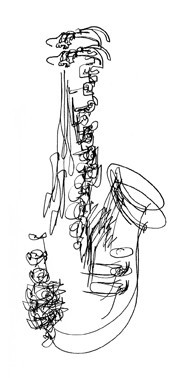Province’s art scene continues to decline
In an attempt to become more palatable, festivals lose appeal
Winnipeg is a city of festivals.
The year begins with the New Music Festival hosted by the Winnipeg Symphony Orchestra. This is immediately followed by the Master Playwright Festival. Things settle down for awhile – but then summer arrives and all hell breaks loose.
There’s the Jazz Winnipeg Festival in June, the Winnipeg Folk Festival at the start of July, the Winnipeg Fringe Festival at the end of July and Folklorama in August.
In the fall, in addition to the Winnipeg Writers Festival, there are all sorts of mini-festivals including Diwali at the Winnipeg Convention Centre.
Winnipeg is also a city of the arts. Did you know that the Royal Winnipeg Ballet was the first professional ballet company in all of Canada and the second in North America? Did you know that Winnipeg’s Contemporary Dancers was the first contemporary dance troupe in all of Canada?
So why, then, is this article about the decline of the arts in Manitoba? Very simple. BUCKS – either not having enough of them, or going after them at the expense of artistic merit.
The saddest example of this drive for profit is seen with the festivals that began with tremendous promise, but have obviously lost their way. There are two in this category – the Winnipeg Folk Festival and the New Music Festival.
When Mitch Podolak began the Winnipeg Folk Festival, he imbued it with his socialist philosophy where the performers, the volunteers and the organizers were placed on an equal level. As its artistic director, Podolak made sure to offer audiences incredibly rich musical discoveries. Each evening after closing the volunteers were invited to the International Inn to spend the night jamming with the performers they had heard that day. Then the corporate mentality set in: let’s make money; forget the after-hours; volunteers get eight hour shifts; give the people what they want – reduce the unknowns in favour of big names and rock-influenced acts.
The New Music Festival followed the same tragic trajectory. Bramwell Tovey offered Winnipeggers incredible abstract music that challenged the audience’s preconceived notions. Amazingly, Winnipeggers not only accepted this, they supported it by showing up en masse. Remember the bleachers set up on the stage of the concert hall? Remember Lori Freedman and that incredible clarinet concerto where she did things with a licorice stick that it was never designed to do?
It’s not that the New Music Festival isn’t worthwhile (nor the Winnipeg Folk Festival, for that matter). In fact, the opening night this past January offered Olivier Messiaen’s Turangalîla-Symphonie to an appreciative audience, and it was an absolutely incredible joy to hear. However, the highlight of this year’s festival was billed as being the Scrap Arts Music, which was a glitter-and-glitz version of taiko drumming. The rest of the offerings were nearly as light.
It’s hard to know what effect the current economic slump is going to have on the state of Winnipeg’s festival/arts scene, but it will probably have some. Let’s just hope it doesn’t last too long and that recovery is in the offing.
Don’t get me wrong, it’s not that the festivals discussed are losing their appeal. In fact, they may have gained some – but, unfortunately, at the sacrifice of their artistic integrity. I recall Valdy’s song, Play Me a Rock and Roll Song, in which a gifted folk singer comes out on stage before an audience who demands that he play them some rock and roll songs or not play at all. Let’s hope the populist ethic hasn’t invaded our musical events too deeply and that they are able to recover.
Published in Volume 63, Number 27 of The Uniter (May 20, 2009)







